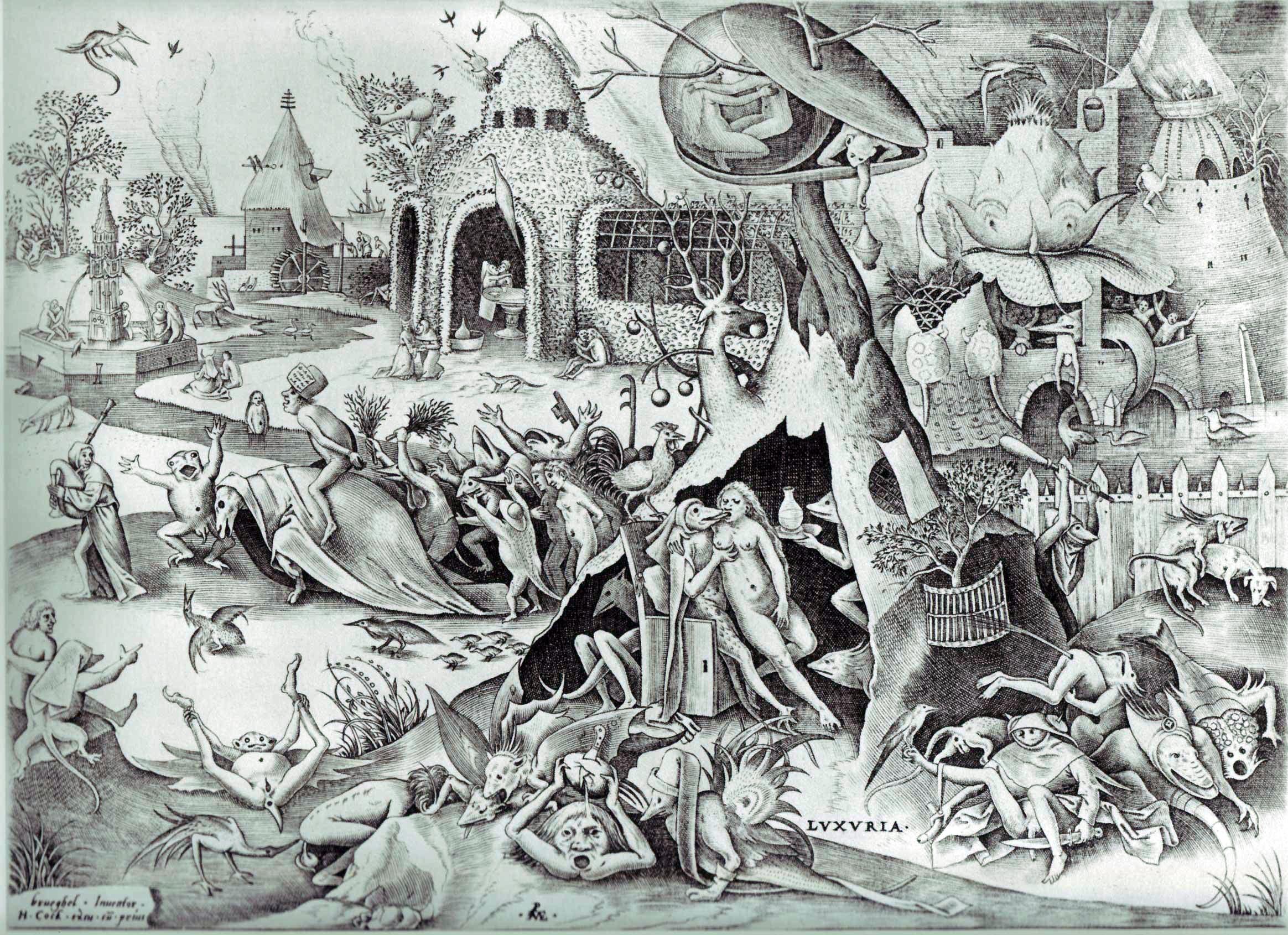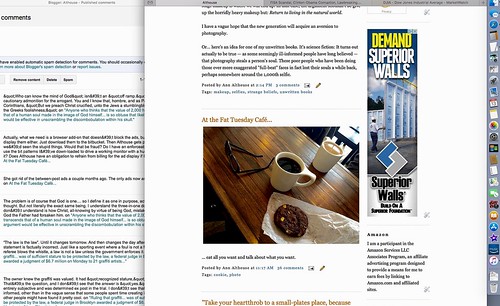"... but also to overlook the more nuanced chatter happening among younger women on social media and digital sites.... And yet most of the disagreement has to do with age-old ideas about sex, power and the function of social movements...
Writes Nona Willis Aronowitz in
"The Feminist Pursuit of Good Sex" (NYT). Aronowitz is the daughter of Ellen Willis, "who in a 1981 essay in The Village Voice asked a question that now looms over #MeToo 40 years later: 'Is the Women’s Movement Pro-Sex?'"
Aronowitz says:
My connection to this complex intellectual heritage is at the heart of why I find the prevailing narrative about #MeToo’s generational split baffling and harmful. Here’s how the story goes: Older critics, flattened into “Second Wave feminist has-beens,” are accusing the movement of becoming increasingly anti-sex, anti-agency and anti-nuance. Younger women, also known as “Twitter feminists,” are accusing these critics of being bitter establishmentarians, unable to cede ground to new ideas. They’re both wrong, but so is this tired mothers-and-daughters framing, which threatens to derail substantive debate in favor of a catfight narrative.
I note the assertion that
both sides are missing nuance. The older women think the younger ones are "increasingly anti-sex, anti-agency and anti-nuance." And the younger ones think the older ones don't follow "the more nuanced chatter" of the internet so they don't grok "the feminist internet tradition of
ironic misandry."
If only we could be more
nuanced, maybe we could meet in the middle. But everybody's always only seeing the lack of nuance on the other side. You get the self-flatterer imperiously telling other people to compromise. But Aronowitz seems to be more of an onlooker, trying to mediate. I look at
Memorandum's River and see there's no significant internet talk about her column. I look at the NYT's own "most-emailed," "most viewed," and even "recommended for you" lists and don't find it. Even with "Good Sex" in the title, it's not getting traction.
From the Wikipedia article on
Ellen Willis:
Willis was known for her feminist politics and was a member of New York Radical Women and subsequently co-founder in early 1969 with Shulamith Firestone of the radical feminist group Redstockings.... Starting in 1979, Willis wrote a number of essays that were highly critical of anti-pornography feminism, criticizing it for what she saw as its sexual puritanism and moral authoritarianism, as well as its threat to free speech. These essays were among the earliest expressions of feminist opposition to the anti-pornography movement in what became known as the feminist sex wars. Her 1981 essay, Lust Horizons: Is the Women's Movement Pro-Sex? is the origin of the term, "pro-sex feminism."
Willis was the first popular music critic for The New Yorker, between 1968 and 1975... In 2011, the first collection of Willis’s music reviews and essays, Out of the Vinyl Deeps (University of Minnesota Press), arrived. It was edited by her daughter Nona Willis-Aronowitz. Ellen Willis "celebrated the seriousness of pleasure and relished the pleasure of thinking seriously," a review in The New York Times said.
Is anyone celebrating the seriousness of pleasure anymore? Even Nona Willis-Aronowitz — seemingly dedicated to her mother's legacy — left off the "Lust Horizons" part of the title of that 1981 essay. She calls it simply "Is the Women’s Movement Pro-Sex?" — perhaps because few readers get the reference to
"Lost Horizon" these days...

... but I think it's because "lust" — a popular and positive word in the 1970s — has become ugly again — returned to its stature as one of "The 7 Deadly Sins"....

The question
are feminists pro-sex? becomes — with nuance —
are feminists pro-good-sex? The easy answer then is yes, but we're left with the difficult question is how to find good sex when her own daughter edits out Ellen Willis's word "lust"?
ADDED: To be fair, Aronowitz does, in her first paragraph, call herself "lusty," but she's speaking of herself in the past and "before I’d learned much about feminism." She was, she says, "fascinated by what we now call the 1970s 'golden era' of pornography... Being a lusty, modern woman, I was enthralled."
But "lusty" doesn't mean "lustful." It means merry and cheerful or hearty and vigorous. "The Turk... gave him two or three lusty kicks on the seat of honour,"
wrote Edmund Burke in his memoir.
The word that means "Full of, imbued with, or characterized by, lust or unlawful desires; pertaining to, marked by, or manifesting sensual desire; libidinous" (OED) is "lustful."














